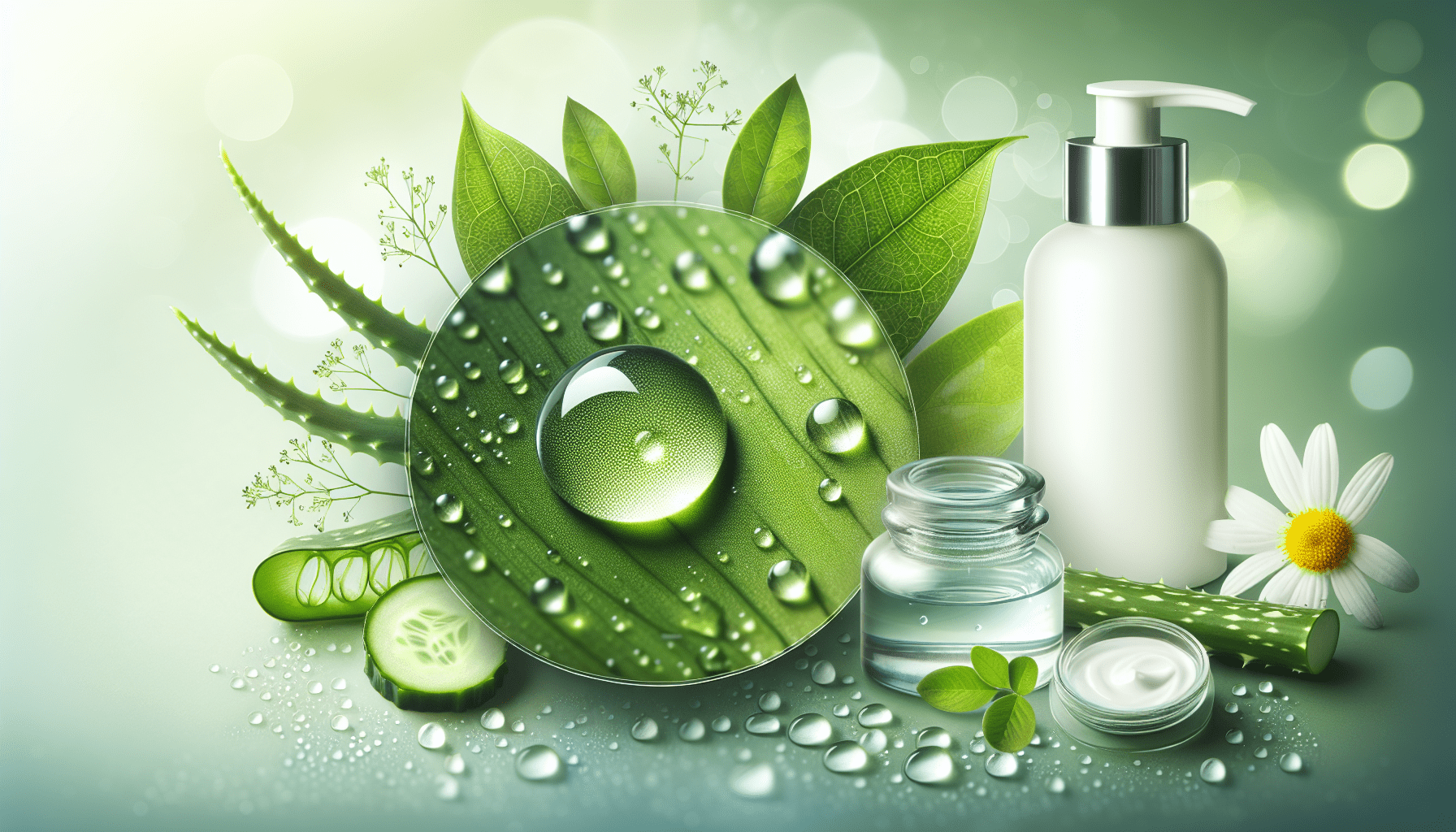Have you ever wondered what the secret is to achieving clear, radiant skin? It’s a question that many ponder as they stand in front of the mirror, scrutinizing every bump, blemish, and indignity time or weather has imposed on their visage. The quest for clear skin can sometimes seem elusive, a goal marred by the complexities of ever-changing skincare trends and advice. However, with some dedication to finding what suits your unique skin type and understanding the fundamentals of skincare, your journey can become significantly smoother.

Understanding Your Skin Type
To embark on the path to clearer skin, you must first understand your skin type. Everyone’s skin is different, and what works for one person might not necessarily work for another. Recognizing your skin type is the first critical step in establishing a successful skincare routine. This knowledge will lead you to products and habits that enhance your skin’s health rather than detract from it.
Determining Your Skin Type
Your skin type is generally categorized into five different types: normal, oily, dry, combination, and sensitive. Each type has distinct characteristics:
| Skin Type | Characteristics |
|---|---|
| Normal | Balanced oil production, smooth texture, minimal imperfections, not sensitive |
| Oily | Shiny appearance, prone to blackheads and blemishes, larger visible pores |
| Dry | Flaky or rough texture, feeling of tightness, increased sensitivity |
| Combination | Oily in some areas (usually T-zone), dry or normal in others |
| Sensitive | Redness, itching, burning, or dryness, may react to certain products and environments |
By closely observing how your skin behaves throughout the day and in different conditions, you can accurately classify it into one of these types. Knowing this will significantly influence your choice of products and routines.
Building a Solid Skincare Routine
Once you’ve identified your skin type, it’s time to build a skincare routine that caters specifically to it. Consistency is key in skincare, akin to maintaining a successful exercise regimen or healthy diet.
Cleansing
Cleansing is the foundation of any effective skincare routine. It helps remove dirt, oil, and impurities that accumulate on your skin throughout the day.
- Normal Skin: Gentle cleansers work well, preferably gel or foam-based.
- Oily Skin: Look for cleansers with salicylic acid to help with oil control and acne prevention.
- Dry Skin: Opt for hydrating, cream-based cleansers that won’t strip your skin of essential moisture.
- Combination Skin: Consider using two different cleansers, a gel for oily areas and a cream cleanser for dry areas.
- Sensitive Skin: Choose fragrance-free, hypoallergenic cleansers to avoid irritation.
Morning and night, cleansing sets the stage for your skin to absorb subsequent products effectively.
Toning
Toners have often been deemed an optional step, yet they offer pivotal benefits that should not be overlooked. Toning can help restore your skin’s pH balance, remove any residual impurities, and prepare your skin for better absorption of serums and moisturizers.
Exfoliation
Exfoliating your skin is like providing it with a fresh start. It removes dead skin cells that accumulate on the surface and can cause dullness and clogged pores.
- Physical Exfoliants: Granular-based scrubs that manually exfoliate the skin.
- Chemical Exfoliants: Use acids, such as AHAs (alpha hydroxy acids) and BHAs (beta hydroxy acids), which dissolve dead skin cells and encourage cell turnover.
The frequency of exfoliation depends largely on your skin type and condition, ranging from one to three times a week.
Moisturizing
Moisturizer is essential for all skin types, providing the necessary hydration and acts as a barrier to lock in the benefits of the products applied before it.
- Normal Skin: Lightweight, water-based moisturizers are sufficient.
- Oily Skin: Choose oil-free, gel moisturizers that offer hydration without excess grease.
- Dry Skin: Heavier creams and ointments help in retaining moisture.
- Combination Skin: A lightweight, non-greasy moisturizer usually works well.
- Sensitive Skin: Fragrance-free, soothing ingredients like aloe vera or chamomile can prevent irritation.
Sun Protection
No skincare regimen is complete without adequate sun protection. Sunscreen shields your skin from harmful UV rays, which contribute to premature aging and hyperpigmentation. No matter the weather, aim to use a broad-spectrum SPF of at least 30 every day.
Addressing Specific Skin Concerns
With a routine in place, it’s time to delve deeper into dealing with specific skin concerns like acne, aging, or hyperpigmentation. Tailoring your routine to address these issues will help you achieve clearer skin more efficiently.
Acne
Acne can be a persistent foe for many, but with the right approach, you can keep it under control.
- Look for Ingredients: Products with salicylic acid, benzoyl peroxide, or tea tree oil are effective in treating and preventing breakouts.
- Be Gentle: Avoid harsh scrubs that can irritate your skin further.
- Spot Treatments: These can be effective in treating individual blemishes.
Aging
As you age, your skin’s needs change, requiring more attention to maintain its vitality.
- Retinoids: Well-known for their anti-aging properties, they promote collagen production and cell turnover.
- Antioxidants: Vitamins C and E can help protect your skin from environmental damage.
- Hydration: Keeping your skin well-moisturized helps maintain its elasticity.
Hyperpigmentation
Dark spots and uneven skin tone can be addressed with targeted treatments.
- Vitamin C: A powerful antioxidant that brightens the skin and reduces pigmentation.
- Niacinamide: Helps with skin tone improvement and discoloration.
- Consistent Sun Protection: To prevent further darkening of existing spots.
Embracing Lifestyle Habits for Healthy Skin
Your skin reflects your overall health and lifestyle. What you eat, how much you sleep, and the stress you experience all make their mark on your skin’s clarity and condition.
Nutrition
Adopting a balanced diet rich in fruits, vegetables, healthy fats, and lean proteins provides your skin with the essential nutrients it needs to thrive.
- Antioxidant-Rich Foods: Berries, spinach, and nuts can fight off free radicals.
- Omega-3 Fatty Acids: Found in fish, walnuts, and flaxseeds, they can help keep your skin flexible and hydrated.
- Hydration: Aim to drink plenty of water to maintain skin elasticity and prevent dryness.
Sleep
Sleep is when your body repairs itself, including your skin. Aim for 7-9 hours of restful sleep per night to promote healthy, clear skin. This time allows your skin to rejuvenate, reducing the appearance of tiredness and dullness.
Stress Management
Chronic stress can exacerbate skin issues like acne and eczema. Incorporating stress-reducing practices such as yoga, meditation, or simply spending time outdoors can have a beneficial impact on your skin health.
Understanding the Role of Consistency and Patience
Achieving clear skin takes time and steadfastness. Overnight results are rare, and frequently switching products can be counterproductive. Allow at least six to eight weeks for new skincare products to take effect. Consisting with your routine and giving it time to work will yield the best results.
Navigating Skincare Ingredients and Labels
Today’s skincare market is flooded with products boasting a myriad of ingredients. Being able to parse through these and understand their benefits—and potential drawbacks—is vital for curating a routine that supports clear skin.
Essential Skincare Ingredients
Familiarizing yourself with a few key players in the world of skincare ingredients can make choosing products less daunting.
- Hyaluronic Acid: Known for its excellent moisturizing properties.
- Glycolic Acid: An AHA that exfoliates and brightens the skin.
- Niacinamide: Improves skin barrier function and uneven skin tone.
- Retinol: Promotes cell turnover and enhances collagen production.
- Ceramides: Help restore and maintain the skin’s natural barrier.
Reading Labels
Understanding labels can prevent allergic reactions or exacerbate existing skin issues. Search for terms like “non-comedogenic” if you’re prone to breakouts, “fragrance-free” for sensitive skin, or “dermatologist-tested” for a safer option. Don’t hesitate to perform patch tests before committing fully to a new product.

When to Seek Professional Help
Sometimes, despite your best efforts, skin concerns may persist or worsen. Consulting a dermatologist or skincare professional can provide you with a personalized plan and targeted treatments that over-the-counter products may not address effectively. Professional help can also guide you on treatments like chemical peels, laser therapy, or prescription-strength medications.
This detailed guide equips you with the tools and knowledge to embark on your journey to clear skin. Embrace the process, experiment with different products, and cherish the routine—for clear skin is as much about care and attention as it is about the products you use. In this relationship between your skin and your care, you’ll find clarity is not so elusive after all.


